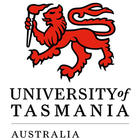Master of Education
Master of Education
The Master of Education is designed to meet the needs of experienced educators seeking professional learning, personal and professional enquiry and intellectual engagement within a specialist area or across a range of specializations. Course objectives Upon completion of the M.Ed., graduates will be able to: Demonstrate specialized knowledge of teaching,…
Categories
COURSE DESCRIPTION
The Master of Education is designed to meet the needs of experienced educators seeking professional learning, personal and professional enquiry and intellectual engagement within a specialist area or across a range of specializations.
Course objectives
Upon completion of the M.Ed., graduates will be able to:
Demonstrate specialized knowledge of teaching, learning and educational research;
Critically interpret research and demonstrate effective research skills to analyze and synthesize information and improve educational practice across diverse contexts;
Analyze, generate, and communicate effective responses to complex problems;
Demonstrate autonomy, expert judgement, adaptability and responsibility as an education specialist;
Communicate effectively with a range of professional communities, including specialists and non-specialists, across a range of platforms.
Learning Outcomes
1. Knowledge – Graduates will know and understand:
The theoretical foundations and practice of education (including various specializations) and how these have informed and can facilitate developments in educational practice from a global perspective;
The inter-relationship of educational research, professional standards, and reflective practice in defining, validating and enhancing learning and teaching in local and global contexts;
Research principles and methods applicable to extending and generating new knowledge in the area of education.
2. Skills – Graduates will:
Critically reflect on and evaluate research findings and professional practice to creatively design, implement, assess and/or theorise responses to changing educational contexts and learner needs;
Integrate education theory with specific content and/or pedagogical knowledge to advance learner outcomes and/or systemic developments in education contexts;
Synthesize and analyze scholarly literature to deepen understanding and evaluation of local and international developments in practice.
3. Application of Knowledge and Skills – Graduates will:
Integrate educational theory, professional knowledge and research skills to plan, implement and evaluate a research project, theoretical investigation, or professional enquiry initiative;
Independently utilize professional standards and contemporary scholarly literature to reflect on practice and facilitate positive educational change.
4. Communication, Collaboration and Leadership – Graduates will:
Communicate professionally and effectively across diverse settings to specialist and non-specialist audiences;
Facilitate the development of advanced knowledge and skills in collaborative practice and leadership roles.
REQUIREMENTS
Admission to most masters by coursework courses at the University of Tasmania require qualifications equivalent to an Australian bachelor degree.
IELTS (Academic) – 6.0 (no individual band less than 6.0)
TOEFL (iBT) 72 (no skill below: Reading 16; Listening 16; Speaking 18; Writing 22)
PTE Academic 50 with no score lower than 50
UTAS Access-English Level 7 – 60% (no individual score less than 60%)
Cambridge CAE (Certificate of Advanced English) – B Grade
Cambridge CPE (Certificate of Proficiency in English) – C Grade
Cambridge BEC (Business English Certificate) Higher – C Grade
EDUCATIONAL INSTITUTION
The University of Tasmania was officially founded on 1st January 1890 and is located at Sandy Bay, Tasmania. In addition to the main campus at Sandy Bay, it also operates out of the Newnham Campus and the Cradle Coast Campus. The most popular courses offered are the environmental studies that include wilderness management, marine sciences and indigenous studies in Tasmanian literature. Other unconventional courses include agriculture development, studies on the community and population and ocean study programs. The university also comprises of a Music Conservatorium, Art school and a School of Clinical studies.




